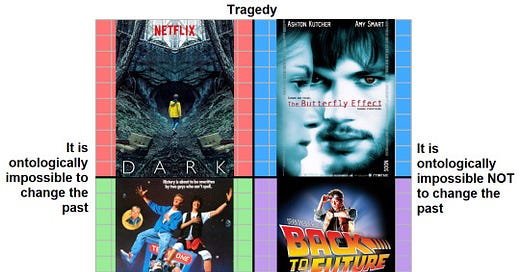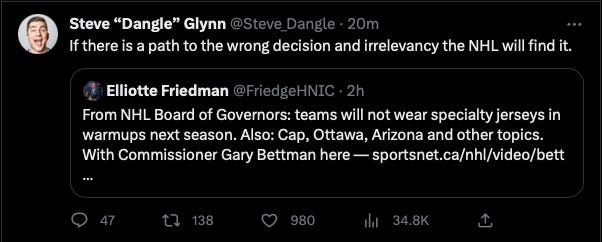Robert Gottlieb and the literary landscape
a memoir, a documentary, and a life in reading unknowingly shaped by one random dude
Robert Gottlieb, legendary editor at S&S, Knopf, and the New Yorker, died last week at 92 years old. I never met him—where would I? He was a legend for longer than I’ve been alive. He edited seemingly every important book of the twentieth century and some of the 21st. He was Robert Caro’s editor. He picked the title for Catch-22. There have been a number of lovely remembrances of him recently—David Remnick's in the New Yorker was particularly moving, since they worked together during Gottlieb’s stint at the magazine. I particularly liked this anecdote:
…He retained, to the end, an outsized taste for the kitschy and the absurd. Daniel Mendelsohn, a writer and a close friend, told Gottlieb, as he lay dying in the hospital, that his room was in a complex named, in part, for the notorious, dog-devoted real-estate figure Leona Helmsley. He seemed delighted and said, “Is that true?!”
When I first became aware of him as an editor, I thought that my first (unwitting) connection to Bob Gottlieb was in my sophomore year of high school, when I read Master of the Senate, volume 3 of Robert Caro’s masterful biography project of Lyndon Johnson. I was seized by the book, gripped by the stories of Johnson’s machinations behind the scenes to get the votes he needed. I briefly harbored a fierce desire to be a Senate page—alas, being the liberal child of Democratic donor parents, there was little chance that the Texas political machine would accommodate this dream, and my representative told me so. Somewhat to my shame, I haven’t read the other three—partly because my horror of starting a series before its finished extends, apparently, to a biography about a man who has been dead since 1973. Obviously I didn’t know about the Gottlieb connection at the time that I read Master of the Senate—I still had only the vaguest ideas about the publishing industry, and wouldn’t until 2010 when I got my first internship.
So yes, I thought Robert Caro was my first Bob Gottlieb connection until finishing Avid Reader. My actual first encounter with a book he worked on was Ray Bradbury’s 1962 masterpiece Something Wicked This Way Comes, which I’d read in middle school. Or wait—was it Jurassic Park by Michael Crichton, which he edited before its publication in 1990? Or was it Chaim Potok’s 1967 novel about orthodox Judaism and baseball The Chosen, which I was assigned to read at some point in school? And then there was the book that has thus far proven to be my most lasting Gottlieb connection—Barbara Tuchman’s magisterial history of WWI, The Guns of August. That book sparked a lifelong love of history in general and the history of the Great War in particular. And she followed Robert Gottlieb to Knopf when he left S&S, and wrote A Distant Mirror: The Calamitous Fourteenth Century, a favorite read from earlier this year.
There are several figures like this in publishing—editors of such long tenure that they have helped create a genre and then transform it. Betsy Wollheim at DAW books, for example—she took over from her father Donald, who founded DAW in 1951 (the year Betsy was born.) DAW started out publishing Andre Norton and C.J. Cherryh, titans of the dawn of science fiction. These days they’re mostly known as the publisher of a little book called The Name of the Wind. (A book I did not like—but boy howdy, did everyone else.) It’s hard to imagine who these days will stick around long enough—or be allowed to stick around long enough—to have the kind of effect on literary culture that Bob Gottlieb had. He came into S&S at a weird, idiosyncratic time. When Marshall Fields sold S&S back to its previous owners, Max Schuster and Leon Shimkin. Schuster and Shimkin hated one another and largely left the two halves of the company alone, so Gottlieb and his team were able to essentially do what they liked. And because they were successful, they were able to continue doing what they liked, even after they moved over to Knopf. And the kind of broad scope of literature Gottlieb was able to publish is also mostly a thing of the past, thanks to the increased specialization of imprints and the drive for sales above all else.
It’s nice, though, to think that there are books out there spanning eight decades that he touched, in one way or another. Avid Reader is as much a portrait of an industry as it is of one man; we see the industry change from the days of men in gray flannel suits and three-martini lunches (which Gottlieb hated—he preferred a deli sandwich, eaten at his desk with a visiting author) to the modernized, computer-and-data-driven model that exists today. When I finished the book, I rented the 2022 documentary Turn Every Page, which follows Gottlieb and Caro’s editorial collaboration as Caro works to finish the fifth (and final) Johnson biography. The documentary (directed by Gottlieb’s daughter Lizzie) has one scene which perfectly illustrates the gap between publishing as it was and as it is now: in it, the two men have come together to work on some pages in the Knopf offices. They have everything they need (including Caro’s typewritten pages) except a pencil. What follows is a funny but somewhat heartbreaking scene, as the two men—one in his nineties, one in his eighties—roam the floor, asking various shocked Knopf employees if they have a pencil. (Imagine sitting in your dimly-lit entry-level cubicle and Roberts Gottlieb and Caro come up to ask about office supplies.) They finally find one, but you can tell that they both experience this as a Moment: wow, we’re old. (At one point they’re offered a mechanical pencil, which they reject firmly.)
Avid Reader contains a good deal of Gottlieb’s advice and sensibilities about the editor-author relationship: get back to your writers right away, it’s the author’s book, not yours, try to help the book be a better version of what it is, not into something that it isn’t. “Publishing is the business of conveying your own honest enthusiasm for a book and a writer to the rest of the world,” he says, a phenomenon borne out by the Time War situation of a few weeks ago.
Beyond books, Gottlieb lived one of those lives that makes me think of that cheesy commercial about the World’s Most Interesting Man: he was passionate about dance, and was on the board of both the New York City Ballet and the Miami City Ballet. He wrote books on jazz and Charles Dickens’ children, and biographies of Sarah Bernhardt and George Balanchine (He’d known and worked with Balanchine at New York City Ballet, which must have been helpful.) He collected Lucite handbags and, during his New Yorker days, attended a convention for Scottie dog fanciers in Cincinnati. It’s the kind of literary life that you see in movies—perhaps a movie like The Best of Everything, which started out as a novel by Rona Jaffe, which, of course, he edited.
He had his hands on practically everything I love. He was the editor for Dorothy Dunnett’s House of Niccolò series. He edited Jessica Mitford’s The American Way of Death and both Sula and Song of Solomon by Toni Morrison. Avid Reader made me miss my place in the industry in a way nothing else has in the three years since I stopped agenting: the chance to participate in the cultural conversation, the chance to influence the literary legacy.
Towards the end of the documentary, Gottlieb is talking with the director about what he views as his role in Caro’s process. After all, the books take years, even decades to write—Caro is eighty-seven, and writes his books on legal pads and an electric typewriter. The work is slow and steady. Does Gottlieb feel an obligation to put pressure on Caro, knowing how high the stakes are, how highly-anticipated the final volume is? No, Gottlieb says. There’s already so much pressure, he couldn’t add to it. And then (I’m paraphrasing,) he says: “I think of my role with Bob as being similar to Cordelia in King Lear: to love, and be silent.” Then he pauses, and looks at the director. “Now that would be a good ending.”
WHAT I’M READING
Folks, I’m about a hundred pages from the end of Witch King, and I don’t know that I’m going to make it over the finish line. Even a lesser Martha Wells book is a decent read, so I’ll likely stick it out, but man is it hard going. Mostly, I’m having the same problem I (regrettably) had at the Orville Peck show I went to earlier this week: there is just no build. Orville Peck has a schtick, and a gift for consistency, which makes for vibey, dreamy albums, but for boring shows. I found myself wanting the emotion of the evening to build to something, but it never did. Similarly, Witch King starts from a place of confusion and peril on the part of its protagonist and hasn’t changed that level yet. There’s no lessening or building of tension. But like I said: I’ll likely push through, but this isn’t my favorite Wells reading experience so far. Next up after this one I will (finally, I swear to god) finish We Ride Upon Sticks, and then hopefully dive into The Water Outlaws by S.L. Huang.
THIS WEEK IN HOCKEY
We’re in the offseason now, baby—I expect the pictures of shirtless idiots on beaches to start up any day. I’m particularly looking forward to the Vegas Golden Knights victory parade. Genuilnely hoping they hold it at night, though, because it’s already hot as hell out there. I’d also like to shout out to the AHL’s Hershey Bears who won the Calder earlier in the week, clinching a title the way their NHL counterparts haven’t been able to do in several years. (Ahem.)
HOUSEKEEPING
My first novel, Marrying In, is available for purchase on Kindle, Nook, and Kobo, and is coming soon to iBooks. If you’ve read it, consider leaving a review—that helps me and the book in the long run!
I’m available to hire for freelance editing services on Reedsy. You can find me on social media on Twitter, Instagram, the A Faster No Discord, and now TikTok. If you buy any of the books linked in this newsletter I receive a small commission at no cost to you.





Jennifer is the best!